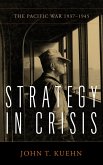On the 80th anniversary of the end of World War II, two acclaimed historians chronicle the remarkable stories behind the surrenders that ended the world's most catastrophic global conflict In May 1945 and then again in August and early September, the seemingly endless World War II finally came to a close in six dramatic surrender ceremonies, four in Europe and the last two in Japan. On the 80th anniversary of those historic events, celebrated historians James Holland and Al Murray chronicle them in turn, focusing especially on the human dramas behind each surrender and relating stories and perspectives on the end of the war that have not previously been told. Germany's armies submitted to the Allies in four ceremonies between May 2 and June 7, the latter after considerable delays by the Germans and threats from General Dwight D. Eisenhower, Supreme Allied Commander. Japan then finally conceded only after the bombing of Hiroshima and Nagasaki, initially on August 15th and then in a formal ceremony aboard the USS Missouri on September 2. Holland and Murray focus on specific characters participating in each of these world-changing events--from ordinary servicemen and women and civilians to generals and political leaders. The saga of the first German surrender, in Italy, revolves around senior SS general Karl Wolff's personal battle to save his own neck and involves VIP prisoners locked up in a resort in South Tyrol, art theft, money laundering, and the resistance of other German commanders to give up. The German surrender to the Americans on May 5 follows the fortunes of private Alan Moskin from New Jersey, whose 6th Infantry Regiment found themselves liberating Gunskirchen, one of Mauthausen's sub-concentration camps, the terrible reality of which affected the rest of his life. The stories surrounding the war's end are in their own way as dramatic as the strategy and battles themselves. As Holland and Murray make clear, they add greatly to our understanding and appreciation of World War II and its legacy.
Hinweis: Dieser Artikel kann nur an eine deutsche Lieferadresse ausgeliefert werden.
Hinweis: Dieser Artikel kann nur an eine deutsche Lieferadresse ausgeliefert werden.








